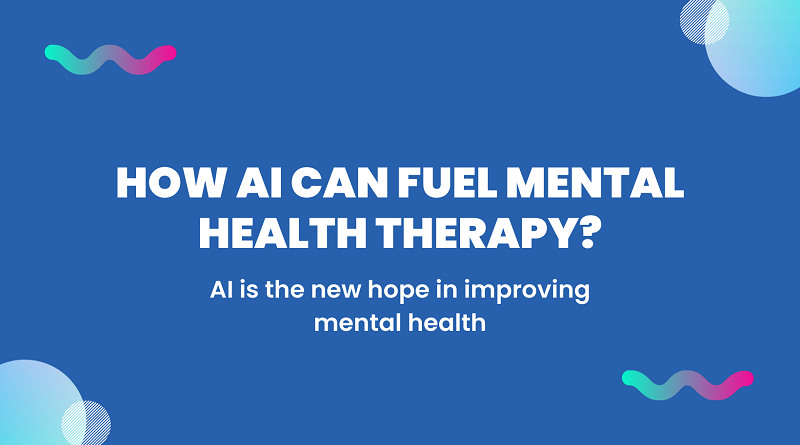How To Build an Ecommerce Store Using AI

The ecommerce industry continues to show significant growth around the world. It accounted for 15.1% of all retail sales in 2023. Around the world, many entrepreneurs and retailers are boarding the online store ship and launching their ecommerce stores. With the availability of artificial intelligence (AI) tools, this task has become even easier.

AI tools can help develop an operational ecommerce store in a matter of minutes. But, you have to give the right instructions. Use this step-by-step guide to help get the desired results from an AI tool to build the perfect online store for your ecommerce business.
Have a Clear Vision
When you are working with artificial intelligence tools, you need a clear vision of what you wish to achieve. It is easy to get swept away by fascinating designs and high-performance features. When you are just starting with an ecommerce website, it is necessary to focus on functionality. Piling up unnecessary features may distract you from your primary purpose.
Before you begin experimenting with AI tools, you need to define a clear plan for your ecommerce business. You can draft a business plan to help you convert your vision into an actionable strategy. This document should include the following details:
- Purpose of the ecommerce business
- Products and customization options
- Product details (attributes, features, benefits, uses, target users)
- On-site and after-sales services
- Market analysis
- Competitor analysis
- Brand positioning
- Target audience analysis
- Audience segmentation & behavior analysis
- Ideal purchase journey
- Brand’s value proposition
These details will serve as a guide for creating your ecommerce website. For example, you can use the insights from the ideal purchase journey to design website navigation. Similarly, insights from brand positioning can help you define the visual aspects of the ecommerce website.
Define Your Requirements
The business plan will help you convert your vision into a strategic document. The next step is to categorically define the requirements for your website. You can divide the requirements into three segments:
- Pages
- Features
- Attributes
First, you need to list out all the pages you will need on your ecommerce website. These would include a home page, category pages, product pages, shopping cart, blog, and so on. Then you need to list out the sections you need on each page. You also need to define what purpose each section will serve for the user.
For example, a product page has several sections including media, benefits, testimonials, user guides, etc. Each of these sections has a purpose and communicates something valuable to the customer about the product.
Next, you need to define the various features you need to create a unique customer experience on your ecommerce website. These may include personalized suggestions, custom searches, intelligent analytics, dynamic pricing, etc. You can incorporate a variety of features using AI tools. But, integrating all the features at once might prove too difficult to handle. It is better to categorize the desired features into primary, secondary, and tertiary.
Finally, you need to define the attributes of your ecommerce website. These are the inherent qualities that you want your ecommerce store to exhibit. It may include fast loading speed, responsive design, SEO-friendly architecture, user-friendly navigation, etc.
These requirements will form the foundation for building your ecommerce store. Then you need to find the AI tools that can fulfill your requirements.
Find the Right AI Tools
You may need a few or several AI tools to build your ecommerce store. This depends on your requirements. You can begin with AI tools to build the website. Some of the most popular tools for this purpose are:
Hostinger Website Builder
Price: $2.99 / month
Hostinger offers 360 ecommerce website development using AI. The platform generates ready-to-use templates with several pages and features. It also generates content for your ecommerce store. Then you can modify the template using a drag-and-drop editor.
Bookmark AiDA
Price: $11.99 / month
This AI website-building platform is especially useful for international ecommerce. Bookmark AiDA offers automatic translation based on the user’s preferred language. It also has in-built SEO and analytics tools. You can also integrate additional functionalities for ecommerce operations including inventory management, offers & discounts, tax calculation, and so on.
Durable
Price: $12 / month
Durable is an easy-to-use website-building tool. You only need to answer a couple of questions and the platform will create your ecommerce website. Then you can customize the design as you like. The platform also has additional features that help with ecommerce marketing. This includes Google Ads Writer, Customer Relationship Management (CRM), and website analytics.
10Web
Price: $10 / month
10Web AI website builder allows you to integrate your ecommerce website with a variety of WordPress tools. This makes it easy to integrate different features and functionalities into your ecommerce store. The AI assistant can generate SEO-friendly content for landing pages and blogs.
Wix
Price: $16 / month
While Wix is not entirely an AI website builder, it does offer several AI-powered functionalities for building your ecommerce store. It allows you to combine AI-generated templates and manual customization. You can also avail of numerous tools and features integrations provided by Wix into your ecommerce website. These can help you with marketing, website management, back-end processes, financial management, and more.
You need to pick a tool that is affordable for your business and helps you develop your ecommerce store quickly and efficiently. Start by comparing your listed features with the offerings of the AI tools. Then you can shortlist the ones that best match your needs. Finally, you need to look at the long-term pros and cons of using a particular tool. Based on this analysis, you can choose the right tool for your ecommerce business.
Start Building your Ecommerce Store
The AI ecommerce website development tools can help you get started with the website. But, they may not fulfill all your requirements. Still, you can get a decent foundation to build upon. The majority of AI website builders follow a similar format.
The platform will first ask you about the type of website you want to create. Here you will pick ecommerce or online stores. The nomenclature may vary from platform to platform. Then the platform would ask you to pick a product category such as electronics, fashion, cosmetics, etc. If you cannot find your exact category among the options, pick the one that is most similar.
Here onwards, the functionality changes between different platforms. Some AI website builders would directly give you a template to edit. While others may ask additional questions to generate a more accurate template. The platform may also ask you to define the required features before providing the template.
You need to complete these steps to generate the template. Then you can refer to your list of requirements and modify the template accordingly. After completing the edits you will have a functional ecommerce website.
Then you can integrate additional features to the website to improve functionality and customer experience. You also need to integrate tools to support operational processes such as payment gateways, order fulfillment systems, CRM, and so on. These features help you automate much of the operations.
For example, with ecommerce order fulfillment you can implement distribution strategies such as dropshipping and micro-fulfillment. The system directly communicates order details and customer information to the shipping carrier. Your logistics partner then collects the products from the fulfillment center and delivers them to the customer.
While AI tools can significantly speed up the process of building an online store, you also need to ensure that you do not ignore other aspects of running an ecommerce business.
Test the AI-Built Ecommerce Website
Once you have completed setting up your ecommerce store, you need to test the website before you launch it. The testing involves analyzing the website’s performance with regard to functionality, SEO, content, user experience, security, external integrations, and so on.
You can conduct a step-by-step test of the entire website starting with the home page. There are also several online tools to help you analyze different aspects of your ecommerce store. For instance, you can use Google Pagespeed Insights to analyze performance issues for desktop and mobile.

Similarly, you can use tools like Ahrefs, Dead Link Checker, Dotcom-Monitor, and others to test other aspects of your website. Before you launch the website, you need to ensure that it is completely healthy in every regard.
Use Intelligent Strategies when Using AI for Ecommerce
AI tools can facilitate ecommerce platforms with a lot of functionalities. They can also speed up the process of developing an ecommerce store. But, these are still tools. Their output depends on how you use them.
Make sure that you are prepared with your goals and requirements before beginning with ecommerce website development. Then use the AI tools to create your desired online store. Finally, test the website before you launch it. You should monitor the website’s performance periodically to ensure its efficiency. You can also integrate additional AI tools into your ecommerce store for better marketing and customer experience.





